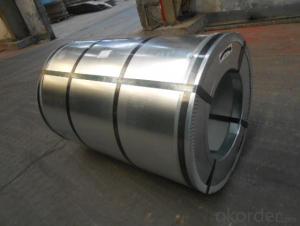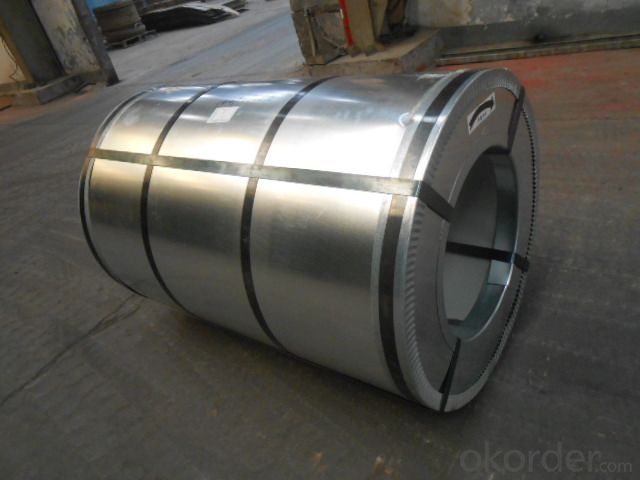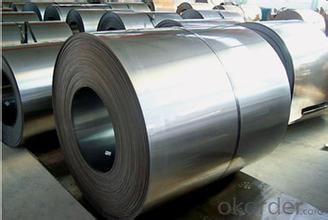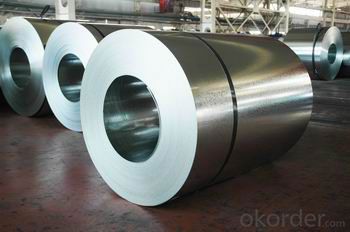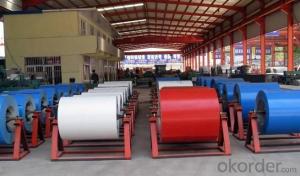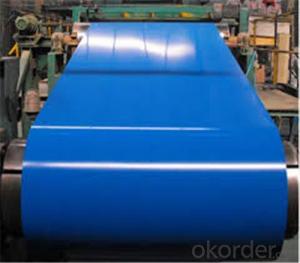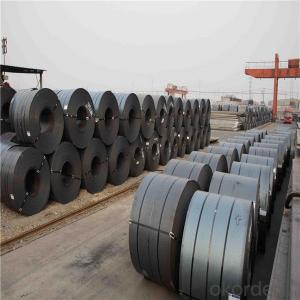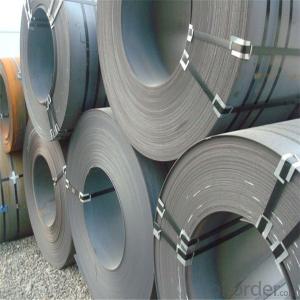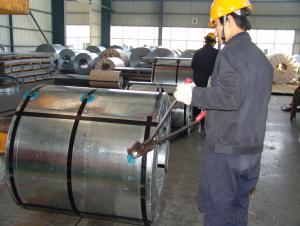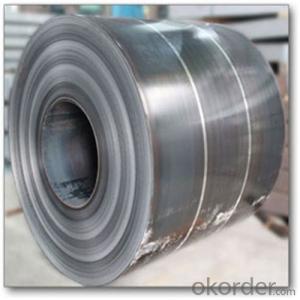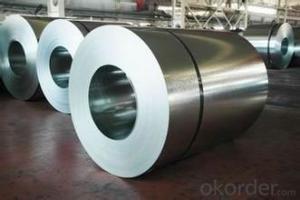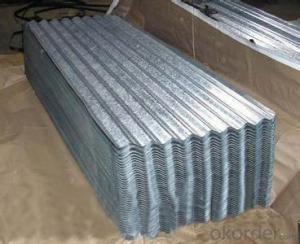Hot-Dip Galvanized Steel Coil with Good Price
- Loading Port:
- Tianjin
- Payment Terms:
- TT OR LC
- Min Order Qty:
- 50 m.t.
- Supply Capability:
- 10000 m.t./month
OKorder Service Pledge
OKorder Financial Service
You Might Also Like
1. Hot-Dip Galvanized Steel Coil Description:
Hot-dip galvanized steel coil are available with a pure zinc coating through the hot-dip galvanizing process. It offers the economy, strength and formability of steel combined with the corrosion resistance of zinc. The hot-dip process is the process by which steel gets coated in layers of zinc to protect against rust. It is especially useful for countless outdoor and industrial application.
2.Main Features of the Hot-Dip Galvanized Steel Coil:
• Excellent process capability
• Smooth and flat surface
• Workability, durability
• Excellent heat resistance performance
• High strength
• Good formability
• Good visual effect
3.Hot-Dip Galvanized Steel Coil Images
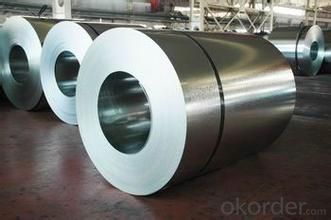
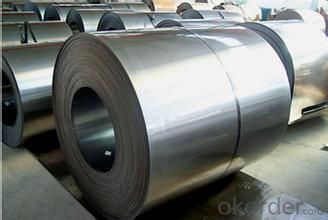
4.Hot-Dip Galvanized Steel Coil Specification
Standard: AISI, ASTM, BS, DIN, GB, JIS
Grade: SPCC, SPCD, Q195, DX51D
Thickness: 0.15-5.0mm
Model Number: coil
Type: Steel Coil
Technique: Cold Rolled
Surface Treatment: Galvanized
Application: Container Plate
Special Use: High-strength Steel Plate
Width: 600-1250mm
Length: depends
commodity: hot dipped galvanized steel coil
technique: cold rolled
thickness: 0.15-5.0mm
width: 600-1500mm
surface treatment: galvanized
zinc coating: 50-275g/m2
coil weight: 3-7 tons
coil ID: 508/610mm
spangle: zero spangle, regular spangle, small spangle, big spangle
payment term: by L/C or T/T
5.FAQ of Hot-Dip Galvanized Steel Coil
What’s the application of this product?
There are many applications for this product. For example, roofing, cladding, decking, tiles, sandwich walls, etc.
What’s the coating composition of Hot-Dip Galvanized Steel Coil?
The coating composition is 55% aluminium in weight ratio, 43.4% zinc, and 1.5% silicon, with excellent corrosion and heat resistance performance.
- Q: I have heard using the BRASS casing is the best thing for an AR-15? Should i just use Brass or Steel?
- Unfortunately, steel case ammo being actually harmful for your AR is a quite popular myth. Steel is less malleable than brass. When you fire a brass cartridge, the brass expands to the chamber walls and helps block any expanding cases from dirtying up your chamber. When firing steel cartridges, the steel doesn't expand as well as brass, so you probably will end up getting a little carbon residue in the chamber. This tiny amount of carbon in the chamber is enough to make extraction of brass cased ammo more difficult. When the brass expands to the dirty chamber after firing steel ammo, it conforms to the carbon residue somewhat, increasing friction. This small amount of friction is sometimes enough to make a normally okay AR malfunction when attempting to eject a fired cartridge. So to give you a short answer, use both! Just make sure to really clean out the chamber after firing steel ammo.
- Q: How are steel coils inspected for uniformity using statistical analysis?
- Steel coils are inspected for uniformity using statistical analysis by randomly selecting a sample of coils and measuring specific characteristics such as thickness, width, and weight. These measurements are then analyzed using statistical methods, such as mean, standard deviation, and control charts, to determine if the coils meet the desired uniformity criteria. This approach allows for efficient and reliable assessment of the overall quality and consistency of steel coils.
- Q: How are steel coils transported and stored?
- Steel coils are typically transported and stored using specialized equipment and facilities. They are commonly transported by trucks, trains, or ships, secured with steel strapping or wire rope to prevent movement during transit. Once at the storage facility, steel coils are typically stacked in a secure and organized manner, either on the ground or on specially designed racks. The coils may be stored indoors or outdoors, depending on the specific requirements and conditions. To protect the coils from damage and corrosion, appropriate weather protection measures and coatings are applied.
- Q: What are the factors affecting the price of steel coils?
- There are several factors that can affect the price of steel coils. These include the cost of raw materials used in the production of steel, such as iron ore and coal. Additionally, the global supply and demand for steel can also impact prices. Other factors can include currency exchange rates, trade policies, transportation costs, and market competition. Overall, the price of steel coils is influenced by a combination of economic, environmental, and geopolitical factors.
- Q: My remington has a 28 inch barrel and was wondering if it would damage my shotgun to shoot steel out of it?
- Yes, OK for steel. Like Mr. 357 says, with steel shot one size more open is equal to the one size tighter. So the Modified should shoot like a full choke and your improved cylinder should pattern like a modified choke. The Express model came out about the same time steel shot became prevalent and it is fine with steel shot. If I remember correctly we were working on making the data sheets for steel shot around 1988-1989. My hunting buddy and neighbor was the man who first began importing steel shot. Had to figure out a wad to use with it also. And got it Federally mandated for waterfowl hunting.
- Q: They say it's some six times stronger than steel. need some explanation.
- Most importantly, spider silk is extremely lightweight: a strand of spider silk long enough to circle the Earth would weigh less than 500 grams (18 oz). Spider silk is also especially ductile, able to stretch up to 140% of its length without breaking. It can hold its strength below ?40 °C. This gives it a very high toughness (or work to fracture), which equals that of commercial polyaramid (aromatic nylon) filaments, which themselves are benchmarks of modern polymer fiber technology. What this means in regard to what you have heard is that if you compared the tensile strength (type 'tensile strength' on wikipedia if you do not know what it means) of spider silk and a strand of steel at the same thickness, the silk would have a higher tensile strength than many grades of steel, upto that of high grade steel - of which they are about the same.
- Q: my homework is a breif description on steel pipe. for plumbing/gas.please help me i dont have a clue where to start, something about the thread and where its used.Thanks,
- www.okorder
- Q: What are the factors to consider when selecting a supplier for steel coils?
- When selecting a supplier for steel coils, there are several factors that need to be taken into account. Firstly, the reputation of the supplier in terms of providing high-quality steel coils is crucial. It is important for the steel coils to meet industry standards and have consistent quality to ensure the durability and performance of the final product. Secondly, the supplier should be reliable and able to consistently meet the demand for steel coils. They should have a proven track record of delivering on time and efficiently handling large orders. The cost of the steel coils is also a significant factor to consider. While competitive prices are important, it is equally important to ensure that the quality is not compromised. It is advisable to compare prices from multiple suppliers to find the best balance between cost and quality. It is also important to look for a supplier that offers a wide range of steel coil products. This will provide various options to choose from and ensure that the exact specifications and dimensions that meet the requirements are available. A supplier with technical expertise and experience in the steel industry can be valuable. They can provide advice and assistance in selecting the right steel coils for specific needs and help with any customization or special requirements. Considering the location and delivery capabilities of the supplier is also important. Choosing a supplier who is geographically closer to the facility can help reduce transportation costs and lead times. Lastly, good customer service is always preferable. The supplier should be responsive to inquiries, provide timely updates, and be willing to address any issues or concerns that may arise. By taking these factors into consideration, an informed decision can be made to choose a supplier that best meets the requirements for steel coils.
- Q: What are the disadvantages of using steel coils?
- One disadvantage of using steel coils is their weight and size, which can make transportation and handling challenging. Additionally, steel coils are susceptible to corrosion, requiring regular maintenance and protective measures to prevent rusting. The production of steel coils also contributes to environmental pollution due to the energy-intensive manufacturing process. Lastly, the upfront cost of steel coils can be relatively high compared to other materials, which may not be suitable for budget-constrained projects.
- Q: Does steel have a valence number and if so, what is it?
- Steel is a mixture, so it doesn't have any valence number. On the other hand, all of the components of the steel mixture are in their elemental forms, so all the various valences are zero.
Send your message to us
Hot-Dip Galvanized Steel Coil with Good Price
- Loading Port:
- Tianjin
- Payment Terms:
- TT OR LC
- Min Order Qty:
- 50 m.t.
- Supply Capability:
- 10000 m.t./month
OKorder Service Pledge
OKorder Financial Service
Similar products
Hot products
Hot Searches
Related keywords
